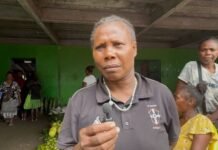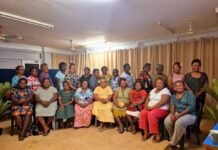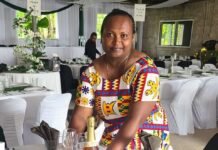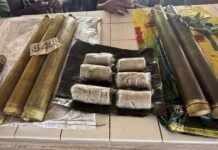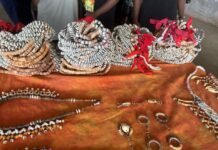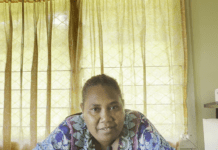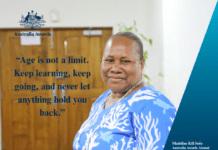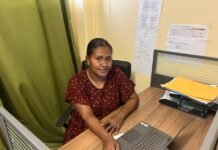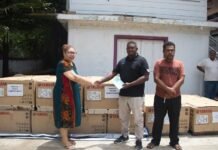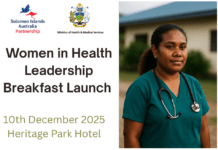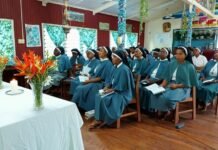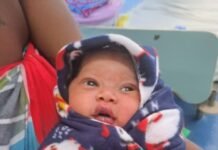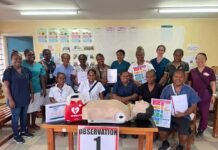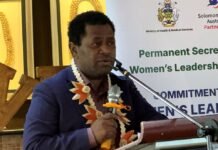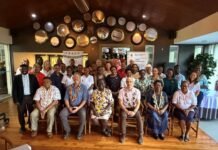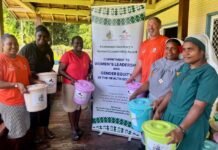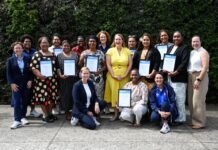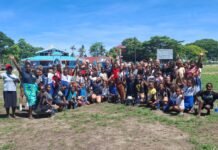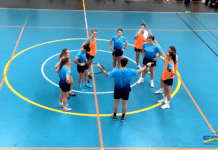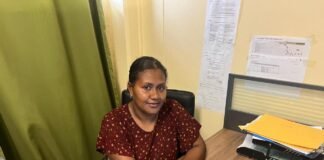
BY ALEX DADAMU
ALTHOUGH the trafficking of persons for sexual exploitation especially of women and girls is not a highly organized movement, it is still present and thriving in the Solomon Islands.
According to the 2022 Trafficking in Persons Report by the United States Department of State which ranks countries as belonging to one of four tiers in their efforts to combat trafficking, the Solomon Islands is a Tier 2 country. This rating means that while the government is making significant efforts to comply with the standards set in place by the Trafficking Victims Protection Act (TVPA), “It is not fully meeting the standards,” the report noted.
Christopher Akosawa, Deputy Director of Immigration under the Ministry of Commerce, Industries, Labour and Immigration (MCILI) pointed out that more awareness needs to be done as the majority of the people in the community are not fully aware of the information and issues involving Trafficking of Women and Girls as a whole.
“Under-aged children are being procured by their own family or relatives to marry expatriates working at logging camps in the Solomon Islands, which is child trafficking.
“A case study involves a 14 years old female minor procured by her father to marry an expatriate working at a logging camp in the country. The Foreign logger paid the parent $600.00 with goods as part of the customary ceremony for the marriage. Immigration and Police intervened and arrested the logger. However, the case was acquitted at Honiara Magistrate Court on the 24th of December 2018. This was because the parents are not willing and uncooperative to give evidence in court.

“This might be the result of a lack of knowledge on the child trafficking issue or because of unemployment and poverty issues,” Akosawa pointed out.
In 2015, the Solomon Islands Government (SIG) established the Anti-Human Trafficking Advisory Committee (AHAC) which is an intergovernmental and stakeholders’ framework combating the ‘Trafficking in persons’ issue. The Committee more recently adopt a 5-years work plan to eliminate sex trafficking – from 2020 to 2025.
A recent case in which the AHAC intervened in involves three young female minors procured by their parents to marry three foreign migrant workers in a logging camp in the Solomon Islands. The loggers exchanged gifts with the parents and were allowed to live with the girls at the logging camp.
According to Akosawa, the AHTAC Task Force intervened and arrested the three loggers and the matter was investigated. However, the parents and victims does not cooperate and the investigation into the case was unsuccessful. Nevertheless, the three loggers were deported from the country.
He further pointed out the challenges affecting the investigation of the Trafficking of Persons in the Solomon Islands as listed below.
a) Islanders’ Marriage Act (Cap.71) gives power to parents to give permission for underage marriage/Parent giving consent for underage marriage.
b) Immigration Act – Trafficking of Persons not comprehensive enough to punish the perpetrator. Immigration powers are limited to clearances, not to investigate and prosecute criminal cases.
c) Understanding of the Trafficking of Person laws.
d) Domestic trafficking difficult to investigate because involving family and relatives.
A study conducted by the American Bar Association in 2014 on ‘Human Trafficking’ which surveyed 406 women and men over four Provinces including Guadalcanal, Malaita, Makira, and Western found that 52% of respondents were unfamiliar with the term ‘human trafficking’ and almost one in four Solomon Islanders did not know where to go for help if they were a victim of trafficking.
According to the study, over one in five respondents believed that forced commercial marriage is part of their culture.
Cody Yerkovich, the Gender Technical Advisor at the Ministry of Women, Youth, Children and Family Affairs (MWYCFA) said it is important to note that Solomon Islands is a very diverse country, made up of different cultures and customs throughout nine Provinces, and as such, the findings within the example study from select communities within four provinces are unlikely to be a complete and accurate representation of Solomon Islands as a whole.

“However, the findings are able to reveal a general picture of the beliefs, perceptions, and attitudes that contribute towards the trafficking of Women and Girls,” she stressed.
The Director of Public Prosecutions (DPP) Rachel Olutimayin pointed out the necessary elements needed for the successful prosecution of offenders.
“Timely reporting of the incident to the Police, good evidence including photographs, video clips other forms of documentary evidence, cooperation of family with Police, prosecutor’s experience and know-how, use of facilities provided by ODPP’s office to ensure good trial preparation, use of legislative processes to take the best evidence from vulnerable witnesses,” she said.
In the meantime, Deputy Director of Immigration, Christopher Akosawa, stated that the Anti-Human Trafficking Advisory Committee (AHAC) is planning to decentralize to other Provincial Headquarters to address accessibility in the coming years.
He pointed out that the Solomon Islands government has worked to address human trafficking within its borders. Although work still needs to occur, policies and programs are in place to combat the pressing issue and bring the country closer to eliminating human trafficking.






